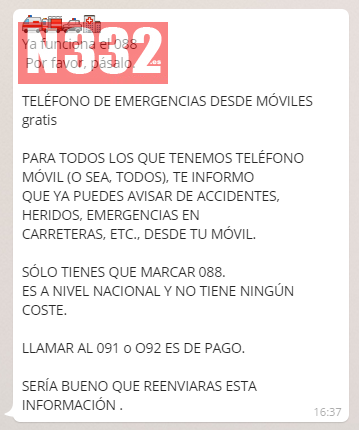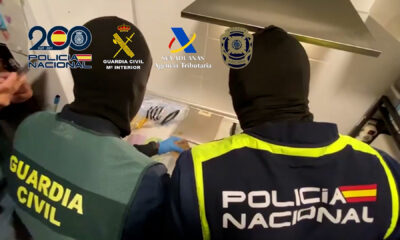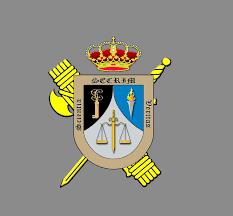Driving in Spain
Beware of Fake Message Scams
Having fast become one of the most popular communication devices used by the mobile generation, and attributed with saving lives due to its ability to share locations and pictures, it is inevitable that mobile message service WhatsApp would also become Read More …
Having fast become one of the most popular communication devices used by the mobile generation, and attributed with saving lives due to its ability to share locations and pictures, it is inevitable that mobile message service WhatsApp would also become a target for scammers.
One of the most recent threats has been sending messages containing details which coerce people into contacting premium rate numbers, either by phoning, or, more usually, subscribing to premium rate messaging services that are extremely difficult to cancel and rack up a huge bill for the victims.
Some messages are not quite so financially problematic but cause their own problems by spreading confusion or panic and wrong information, especially as they encourage innocent victims to share the erroneous information with their friends, creating a viral network of confusion and scam in which more innocent parties are drawn in.
One recent message which has been shared through WhatsApp relates to the emergency services. The message, which is often accompanied by emoticons (small images) depicting police, fire and ambulance, advises users that in the event of an emergency, you can summons the emergency services by calling 088 for free. This is simply not true.

It was in 1991 that the European Union recognised the need for a standardised emergency number for all member states, so that wherever you were across the continent you would always know the number to dial in the event of an emergency. That number is 1-1-2.
In recognition of the date, there is also an annual celebration day which raises awareness of that number which is held on the 11th of February each year, or, to put it another way, on 11-2, thus affirming the existence of the number sequence, 1-1-2.
The number works from any phone, whether it is a fixed landline or a mobile, and will even work if the mobile phone is locked or has no data plan, so wherever you see a phone, the emergency number will always be 1-1-2, without cost to the caller.
There are many other similar messages which have spread through WhatsApp, as well as social networks such as Facebook and Twitter, many of which are documented on the internet, and so it is always worthwhile doing a quick search if you do receive anything that looks unusual, or too good to be true.
But in this case, although the number in the latest message is not active and has been confirmed that it has no relevance to the emergency services currently (it was previously associated with the Catalan police but is no more), the message is considered to be inappropriate and dangerous as it could cause confusion to the recipient, which, at a time which can often mean the difference between life and death, could cost lives by delaying the emergency response.
It is therefore important to ignore a message which looks like this one, certainly not forwarding it to your friends, and always remember that in the case of a life threatening emergency, the only number you need to know is 1-1-2.


























